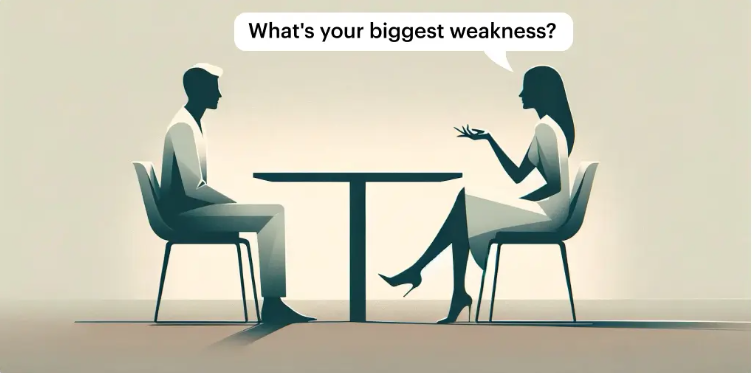10 Effective Ways to Discuss Your Weaknesses in Job Interviews
How to Discuss Your Weaknesses in Job Interviews: 10 SEO-Friendly Example Answers
Job interviews can be nerve-wracking, especially when faced with the classic question: “What is your greatest weakness?” While this might seem like a trick question, it’s actually an opportunity to showcase self-awareness, a growth mindset, and problem-solving skills. When handled well, discussing your weaknesses can actually work in your favor, making you stand out as a thoughtful and adaptable candidate.
In this SEO-friendly blog post, we’ll explore the importance of discussing weaknesses in a job interview and provide 10 example answers that will help you frame your response in a positive and constructive way.
Why Employers Ask About Weaknesses
Before diving into the examples, it’s important to understand why this question comes up in interviews. Employers aren’t trying to trap you—they want to assess your:
- Self-awareness: Do you recognize areas where you can improve?
- Growth mindset: Are you someone who learns from challenges?
- Cultural fit: How do you handle difficulties, and will your response align with the company’s values?
Discussing weaknesses shows you’re not afraid to acknowledge your flaws and are actively working to grow as a professional.
10 Example Answers for “What Is Your Greatest Weakness?”
1. Perfectionism
Perfectionism can lead to delays and unnecessary stress.
Example Answer:
“I have a tendency to be a perfectionist, which sometimes means I spend too much time on tasks. However, I’ve learned to manage this by setting specific time limits and prioritizing tasks based on their importance. This has helped me maintain quality while meeting deadlines.”
Why It Works: It highlights self-awareness and your proactive approach to improving efficiency.
2. Difficulty Saying No
Saying yes to everything can lead to overcommitment and burnout.
Example Answer:
“I often struggle with saying no because I enjoy helping others. However, I’ve started setting boundaries by reviewing my workload before taking on new tasks. This ensures that I can maintain high-quality work without overextending myself.”
Why It Works: You demonstrate that you’re learning how to manage your workload effectively.
3. Public Speaking Anxiety
Public speaking is a common fear but can be improved with practice.
Example Answer:
“I used to be anxious about public speaking, but I’ve taken steps to overcome this. I’ve joined a public speaking group and volunteered for small presentations, which has greatly improved my confidence.”
Why It Works: You show initiative and a commitment to personal growth.
4. Delegating Tasks
Finding it hard to delegate can lead to micromanagement and reduced team efficiency.
Example Answer:
“I’ve always found it challenging to delegate tasks because I worry about maintaining quality. However, I’ve started delegating smaller projects and providing clear instructions, which has helped me trust my team more and improve their performance.”
Why It Works: This answer shows leadership development and a willingness to empower others.
5. Technical Skills Gaps
No one is proficient in every tool, but the key is being willing to learn.
Example Answer:
“I’m less familiar with advanced data analysis tools, but I’ve been taking online courses to improve. I’m excited to apply these new skills to my work and become more proficient over time.”
Why It Works: You emphasize your willingness to learn and adapt to new technologies.
6. Impatience with Slow Processes
Impatience with processes can lead to frustration but also drive improvements.
Example Answer:
“I sometimes get impatient when projects slow down due to long processes. However, I’ve learned to appreciate the need for thoroughness and have focused on celebrating small milestones to keep motivation high.”
Why It Works: It shows a balanced understanding of the importance of both efficiency and attention to detail.
7. Over-Achieving and Stress
Striving for excellence can lead to stress and burnout.
Example Answer:
“I tend to push myself to achieve high standards, which can sometimes lead to stress. To manage this, I’ve started practicing mindfulness and improving my time management skills, which has helped me find a better work-life balance.”
Why It Works: This answer shows a commitment to maintaining both productivity and well-being.
8. Adapting to Change
Change can be challenging, especially in fast-paced industries.
Example Answer:
“Adapting to sudden changes has always been difficult for me, but I’ve been actively working on it by taking on cross-departmental projects. These have pushed me to become more comfortable with change and have helped me develop better adaptability.”
Why It Works: It shows that you’re working on a critical skill in today’s dynamic work environment.
9. Networking Discomfort
Networking can feel overwhelming, but it’s crucial for career development.
Example Answer:
“I’ve always found networking events to be a bit overwhelming. To improve, I set small goals for each event, like initiating conversations with at least two new people. This approach has made networking more manageable and enjoyable.”
Why It Works: This answer reflects your commitment to personal and professional development.
10. Fear of Taking Risks
Being too cautious can stifle innovation.
Example Answer:
“I’ve always been cautious when it comes to taking risks, but I’ve learned to balance this with calculated risk-taking. I now analyze potential outcomes and take small, manageable risks to help drive innovation.”
Why It Works: You demonstrate a thoughtful approach to overcoming your fear while embracing innovation.
Tips for Discussing Weaknesses in Job Interviews
When discussing your weaknesses, follow these simple tips to ensure your response is both honest and professional:
- Be Honest: Choose a real weakness, but don’t overshare or pick something that could disqualify you for the role.
- Show Improvement: Always frame your weakness as an area of growth and highlight the steps you’re taking to improve.
- Keep It Relevant: Focus on work-related weaknesses, avoiding personal traits that are unrelated to the job.
Conclusion: Turn Your Weaknesses into Strengths
Discussing weaknesses in job interviews doesn’t have to be intimidating. By preparing thoughtful responses and framing your weaknesses in a positive light, you can show employers that you are self-aware, adaptable, and continuously growing as a professional. Use these example answers to inspire your own responses and approach your next interview with confidence!
What’s your greatest weakness, and how have you worked to improve it? Let us know in the comments!
For more interview tips and career advice, be sure to check out our blog for additional resources and strategies.


Harold McCoy
25 Jan, 2023Lorem ipsum, dolor sit amet consectetur adipisicing elit. Repudiandae quibusdam deserunt, quaerat mollitia corrupti pariatur?
replyRonald Wright
25 Jan, 2023Lorem ipsum, dolor sit amet consectetur adipisicing elit. Repudiandae quibusdam deserunt, quaerat mollitia corrupti pariatur?
replySharon Harper
25 Jan, 2023Lorem ipsum, dolor sit amet consectetur adipisicing elit. Repudiandae quibusdam deserunt, quaerat mollitia corrupti pariatur?
reply